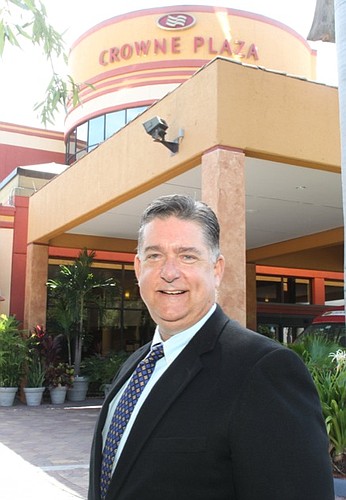- July 26, 2024
-
-
Loading

Loading

Jim Larkin is worried that no one is minding county politicians.
Larkin, the general manager of the Crowne Plaza hotel in Fort Myers, is one of a dozen hoteliers who recently formed the Lee County Hotel Association. “We want hoteliers to know what's going on with the bed tax,” says Larkin, who is the new association's president.
The Lee County hoteliers are worried the bed tax that pays for tourism marketing is becoming a tempting target for county politicians who have seen their general revenues trimmed by the economic downturn.
Recently, for example, Larkin learned that bed-tax money has been used to pay for water-quality studies. “The bed tax is always a really good target,” Larkin says. But, he notes, “It's not a limitless pot of money.”
One of the reasons the bed tax could be easy for county politicians to siphon is that local residents don't pay it. That was a key sales point in the debate to build a $78 million spring-training stadium for the Boston Red Sox, whose principal owner is billionaire investor John Henry. The bonds used to finance the project are being repaid with bed-tax money collected from tourists.
Lee County levies the 5% bed tax on tourists who stay in short-term accommodations. The Lee County Tourist Development Council oversees the disbursement of the funds. In recent years, the tax has generated between $22 million and $23 million annually.
Currently, about half of the bed-tax money pays for the operation of the Lee County Visitor and Convention Bureau to advertise and promote the area. The rest of the money is split between paying for the debt on sports facilities like the spring-training stadium and beach improvements.
Larkin says hoteliers generally approve of the way bed-tax money is being spent currently, including the Red Sox stadium financing. “We don't have an ax to grind with anybody,” he says.
But some hoteliers don't feel they're adequately represented on the Tourist Development Council, and they're worried about politicians dipping into the bed tax for nontourism-related projects. For example, the county commission replaced one of the hoteliers on the council recently with a former Fort Myers city councilman. “That was the nudge” to form the hotel association, an idea that had been discussed for several years, says Larkin.
Instead of speaking individually, Larkin says hoteliers will have a stronger voice in how government impacts tourism by banding together. There are currently 14 dues-paying members and Larkin hopes to have as many as 40 by the end of this month. There are 135 hotels in Lee County.
Still, Larkin says the association is not a political-action committee and has no plans to endorse politicians. Monthly educational luncheons and networking opportunities will be a big part of the group's agenda. “We're not looking to be a political animal,” Larkin says.
Dues range from $75 to $200 a year, depending on how many employees the hotel has. To keep dues relatively low, Larkin says there are no immediate plans to hire staff. “It's all volunteer,” he says.